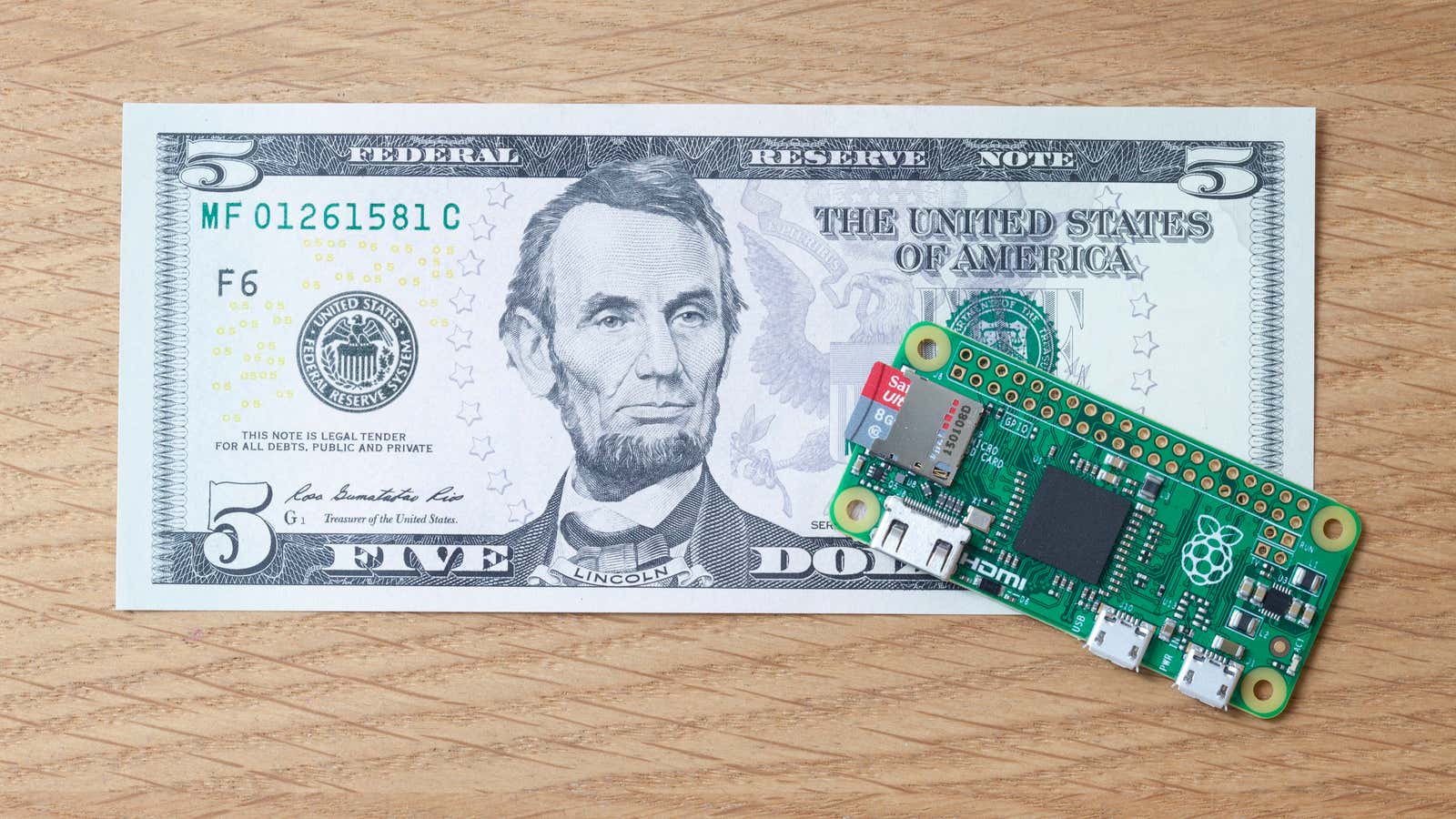The tiny Raspberry Pi computer has just been released in a new version that’s even smaller than previous credit card-sized editions. But the new Pi Zero has another trick that’s even more important than its tiny size: It’s on sale for just $5.
Raspberry Pis were already popular with educators and hobbyists because they’re extremely easy to use, merely requiring being hooked up to a standard TV, keyboard, and mouse. Previous editions sold for around $20 to $35, and this revolutionary low price made them attractive to schools who could afford to buy many units at once. In 2013 Google even granted $1 million to put around 15,000 Raspberry Pis into schools around the UK.
But the new Pi Zero takes the idea one giant step further. The device has a 1GHz ARM11 CPU, which is 40% faster than the first Pi machine, 512MB of built-in RAM, a microSD card slot for expanding its internal storage, and a mini HDMI socket that’s capable of sending full HD video to a TV. Plus it comes with identical output connection layouts to earlier editions, so it’ll likely remain compatible with many existing Pi-based projects. But the unit is now just 65mm by 30mm, which is smaller than a credit card and just 5mm tall. It’s so small that five Zero units fit sideways on top of a single dollar bill, for context.
This means hobbyists will be able to permanently build Pi Zeros into even smaller or more portable devices. The one drawback is that the smaller connectors on the Zero may require adaptors before the device is connected to other peripherals, but these aren’t expensive, and the Raspberry Pi organization is even pointing out deals that sell adaptor packs for around $5.
The price of the Zero is the headline grabber, of course, since it’s a full working programmable computer on sale for only a little more than a venti latte at your favorite coffee outlet. Even more impressive is the fact that in the UK the official Raspberry Pi magazine The MagPi is on sale at its usual cover price with a free Zero stuck to its cover.
Tapping into the whole “teach kids to code” push, the Pi has already earned praise from big names like Apple cofounder Steve Wozniak, and builds on a long tradition of accessible home computing in Britain that some credit for the billion-pound size of the UK’s videogame industry. Lest you doubt its capabilities, the Pi has even had a special version of Minecraft written for it.




